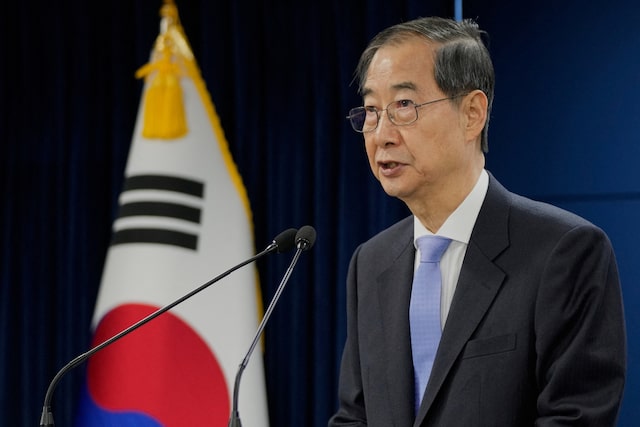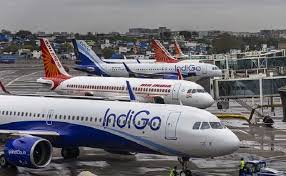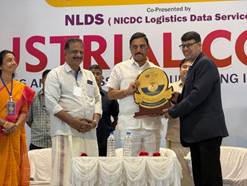South Korean acting President Han Duck-soo speaks during a briefing at the Government Complex in Seoul, South Korea, Monday, March 24, 2025. Ahn Young-joon/Pool via REUTERS
Summary
- South Korea orders emergency support for businesses affected by U.S. tariffs
- Trump’s tariffs include 25% rate on South Korea, affecting export-reliant economy
- KOSPI index drops 2.7%, automakers and chipmakers hit
SEOUL, April 3 (Reuters) – South Korea’s acting President Han Duck-soo called on Thursday for talks with U.S. officials to shield the export-reliant economy from the impact of U.S. tariffs and ordered emergency support measures for businesses.
U.S. President Donald Trump has unveiled global reciprocal tariffs and displayed a 25% rate on South Korea.
Han asked the industry minister to analyse the content of the tariffs and actively negotiate with Washington to minimise the impact, an industry ministry statement said.
“As the global trade war has become a reality, the government must pour all its capabilities to overcome the trade crisis,” Han said at a meeting with the finance minister and other top officials.
Industry Minister Ahn Duk-geun called the new tariffs “regrettable” but said Seoul will keep consulting with both senior and working-level U.S. officials on tariffs.
Trump in his speech singled out Washington’s Asian security allies South Korea and Japan, accusing them of being among the worst offenders for conducting unfair trade practices against the United States.
Analysts in Seoul said Trump’s extensive rollout of tariffs would inflict a significant blow on Asia’s fourth-largest economy.
“It is clear that major export products such as automobiles will be hit hard, and exports to the U.S. through production bases in Vietnam will also be hit hard,” Park Sang-hyun, an economist at iM Securities, said in a note.
Trump also announced a 46% duty on imports from Vietnam. South Korea’s major corporations such as Samsung Electronics and LG Electronics have manufacturing bases in the Southeast Asian country.
Citi estimated the new tariffs could shave 0.16% from South Korea’s GDP this year, putting its 1.0% economic growth forecast at risk.

‘NO CAPTAIN ON A BOAT IN TYPHOON’
Top government officials met South Korean business executives on Thursday to discuss the tariffs.
Lee Yong-ho, chief executive of AIT, a company exporting aluminium automobile parts to the U.S., said AIT was already being squeezed by additional costs since a 25% tariff on aluminium products took effect in March.
“We’re like let’s hold it out for now, but if it continues any longer, we’re looking at a hopeless situation,” said Lee, who feared losing his American clients to local rivals if he tried to raise product prices.
The benchmark KOSPI stock index (.KS11), trimmed losses to less than 1% as of 0415 GMT, after falling as much as 2.7% in early trade to three-month lows. Automakers hit their weakest levels in more than 14 months, while chipmakers also slumped and battery maker LG Energy Solution hit a record low.
It was unclear what emergency measures South Korea would announce to try to mitigate tariffs, but Han is due to preside over a meeting with the private sector later on Thursday to discuss the response.
The efforts to tackle the tariffs come as South Korea deals with a leadership vacuum.
The Constitutional Court is due to rule on Friday whether to permanently remove or reinstate President Yoon Suk Yeol after he was impeached over his short-lived move to impose martial law in February.
Lee, the auto parts supplier, likened South Korea’s situation with tariffs to a ship trying to navigate a typhoon without a skipper. “Our ship has no captain,” he said, in reference to the political uncertainty.
Before Trump’s announcement on reciprocal tariffs, South Korean officials had sought exemptions, arguing the country had almost zero tariffs in place under a comprehensive free trade pact with the United States.
“It is assessed to have practically nullified the Korea-U.S. Free Trade Agreement,” said Paik Seok-hyun, an economist at Shinhan Bank, referring to Trump’s new tariffs.
A finance ministry official told Reuters that the information available so far suggested the 25% tariff rate took precedence over the free trade pact and the government was actively seeking negotiations with the United States to lower it. Another government official, who requested anonymity, said South Korea was not in a position to counter U.S. tariffs aggressively under current security environments and must try to negotiate with Washington.
Reporting by Ju-min Park, Jihoon Lee and Yena Park; Editing by Ed Davies, Michael Perry and Kate Mayberry





